World-Class Expertise
With a DM in Nephrology from Sanjay Gandhi Postgraduate Institute of Medical Sciences (SGPGI), Lucknow, and MRCP SCE Nephrology (UK) credentials, Dr. Arpit Srivastava brings global standards to Gorakhpur.
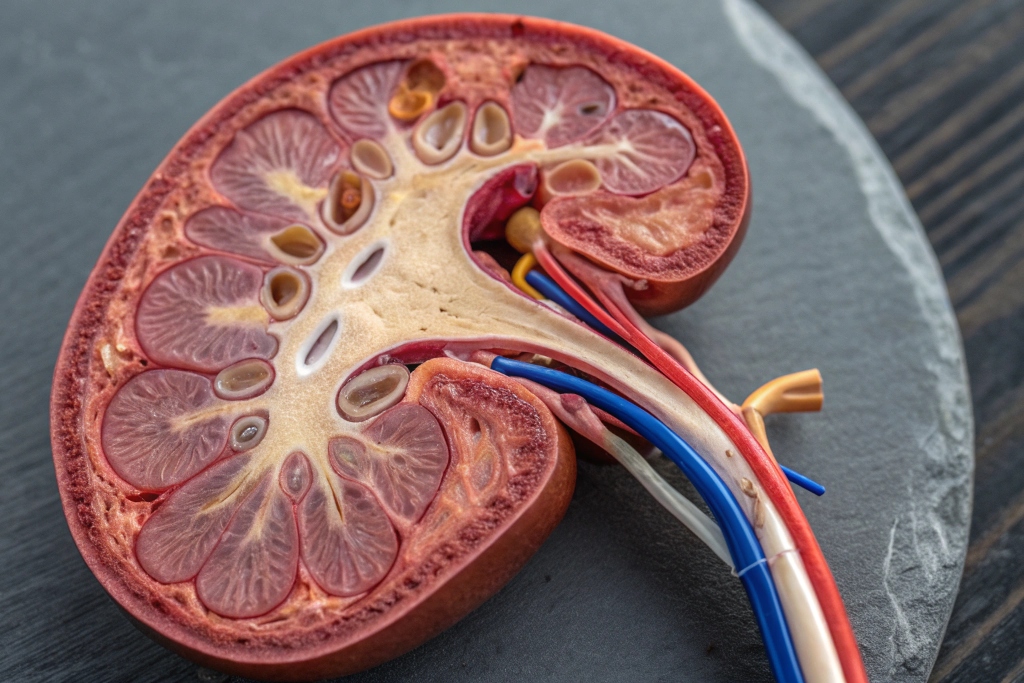
Glomerulonephritis refers to a group of diseases that cause inflammation or damage to the glomeruli, the tiny filtering units in the kidneys responsible for removing waste and excess fluids from the blood. When the glomeruli are inflamed, they cannot function properly, leading to problems like protein or blood in the urine, swelling, and reduced kidney function. Glomerulonephritis can be acute (sudden onset) or chronic (progressive), and if left untreated, it may lead to serious complications, including chronic kidney disease (CKD) or kidney failure.
As a kidney specialist doctor in Gorakhpur, Dr. Arpit Srivastava emphasizes early diagnosis and intervention to manage glomerulonephritis effectively. His expertise ensures patients receive personalized care to preserve kidney function and improve quality of life.
+91-7054357996Glomerulonephritis encompasses various forms, each with distinct causes and characteristics. Understanding the type is essential for tailored treatment. The main types include:
Quick and easy online scheduling
+91-7054357996 arpitnephro@yahoo.comProviding advanced kidney care at Regency Hospital, Gorakhpur
Glomerulonephritis can result from various factors, often related to infections, immune system issues, or other health conditions. Common causes include:
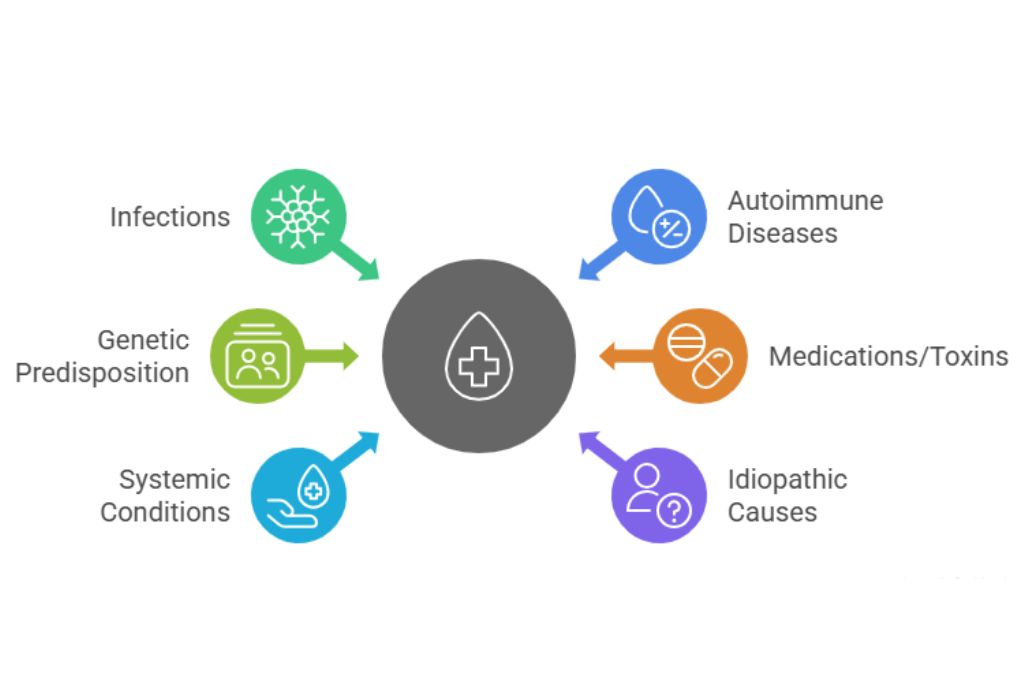
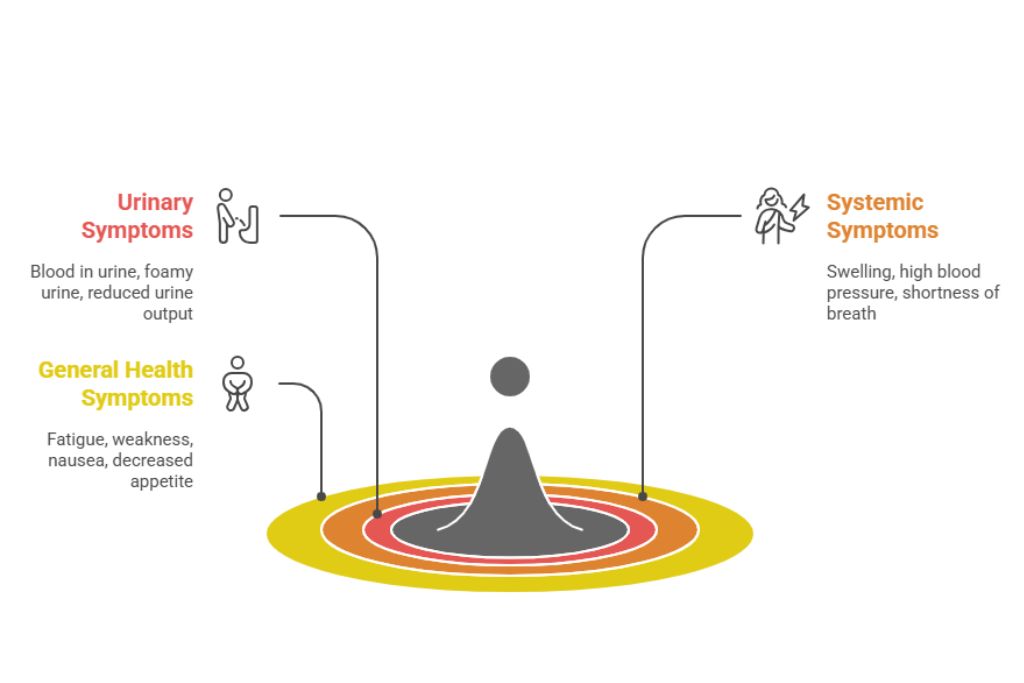
Glomerulonephritis symptoms vary depending on whether it’s acute or chronic and the underlying cause. Early signs may be subtle, making regular checkups vital. If you notice these symptoms, consulting a kidney care specialist in Gorakhpur is essential for prompt diagnosis and care.
If you notice these symptoms, consulting a kidney care specialist in Gorakhpur is essential for prompt diagnosis and care.
Accurate diagnosis is the cornerstone of glomerulonephritis management. Advanced diagnostic tools are used to assess kidney function and identify the underlying cause. Dr. Arpit Srivastava uses these diagnostics to create a comprehensive understanding of each patient’s condition, ensuring tailored treatment plans.
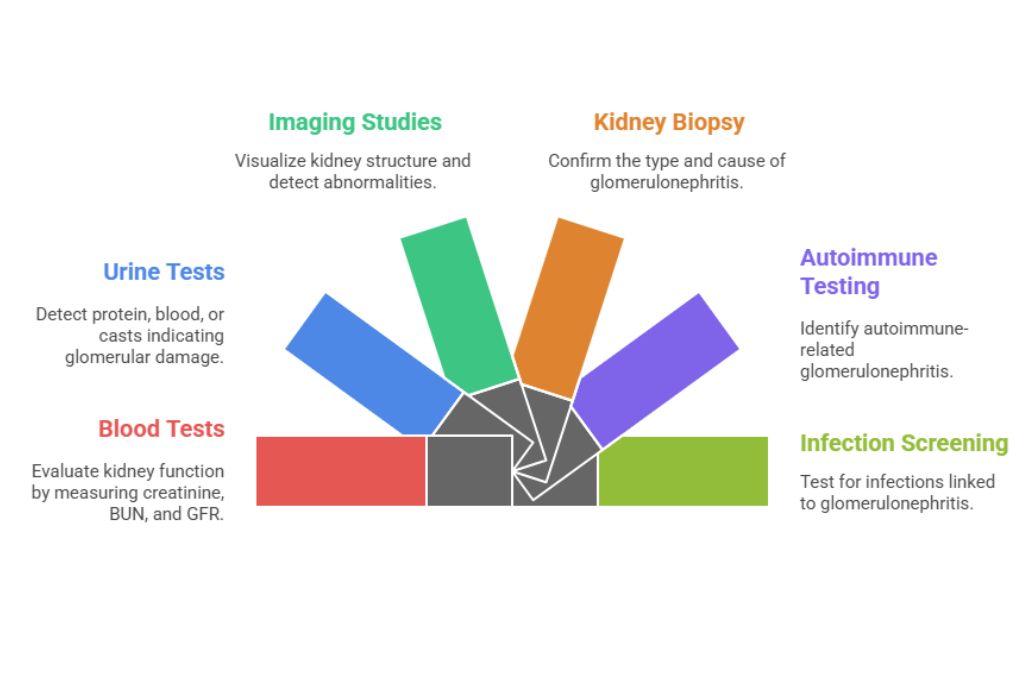
Treatment for glomerulonephritis is tailored to each patient. Based on the cause and severity, it may include medications, lifestyle changes, dialysis, or even a kidney transplant to protect long-term kidney function.
Medications are used to control inflammation and underlying conditions:
Lifestyle modifications support kidney health and symptom management:
In severe cases where glomerulonephritis leads to kidney failure, dialysis may be required:
For patients with end-stage kidney disease due to glomerulonephritis, a kidney transplant may be necessary. Dr. Arpit Srivastava, a kidney transplant doctor in Gorakhpur, has extensive experience in over 200 transplants, including ABO-compatible and ABO-incompatible cases, ensuring comprehensive care.
Specialized services are offered to support patients with glomerulonephritis, ensuring comprehensive care at every stage:
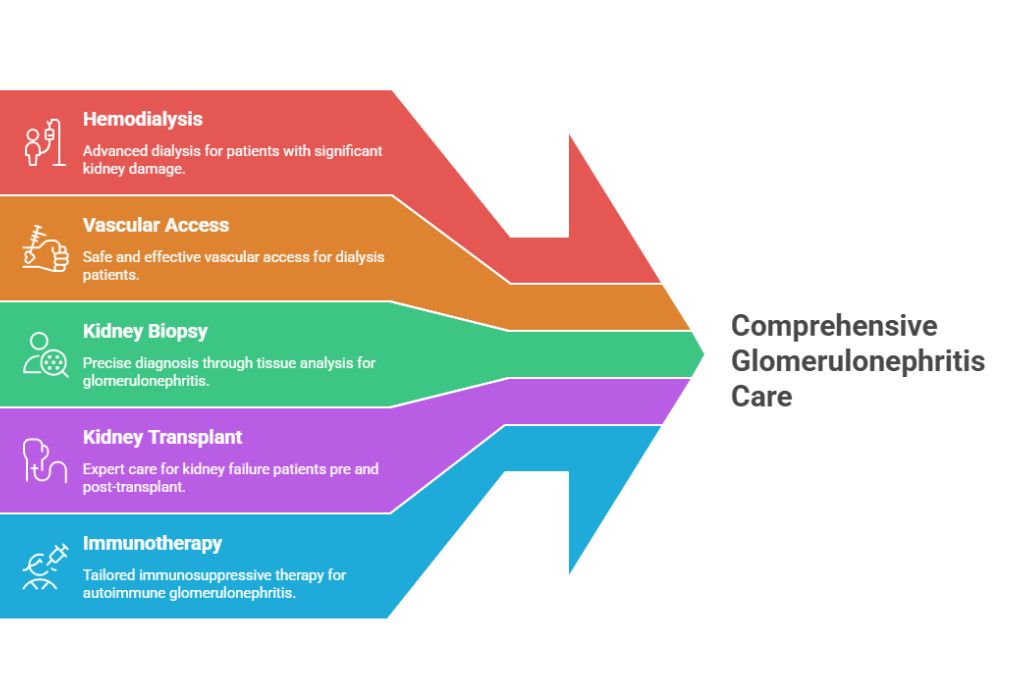
While not all cases of glomerulonephritis are preventable, certain measures can reduce the risk or slow progression. Consulting a nephrologist in Gorakhpur can provide personalized guidance to protect kidney health.
Dr. Arpit Srivastava is a trusted top nephrologist near me in Gorakhpur, offering unmatched expertise and patient-centered care. Here’s why patients choose him:


With a DM in Nephrology from Sanjay Gandhi Postgraduate Institute of Medical Sciences (SGPGI), Lucknow, and MRCP SCE Nephrology (UK) credentials, Dr. Arpit Srivastava brings global standards to Gorakhpur.

Each patient receives a customized plan addressing their specific condition, lifestyle, and goals. From early diagnosis to advanced treatments like dialysis or transplants, the focus is on long-term health.

State-of-the-art diagnostic tools, including blood tests, imaging, and kidney biopsies, ensure accurate diagnoses. Advanced dialysis and transplant services provide comprehensive solutions.
We’re here to help you every step of the way. Whether you need quick answers, personalized guidance, or direct support—our team is just a click or call away.
Glomerulonephritis is a group of diseases causing inflammation in the kidneys’ glomeruli, affecting filtration. A glomerulonephritis specialist in Gorakhpur can provide expert diagnosis and care.
Causes include infections (e.g., streptococcus, hepatitis), autoimmune diseases (e.g., lupus), medications, toxins, or genetic factors.
Diagnosis involves blood tests, urine tests, imaging (ultrasound, CT), kidney biopsy, and autoimmune or infection screening, guided by a kidney disease specialist in Gorakhpur.
Some acute cases resolve with treatment, but chronic forms require ongoing management to slow progression and prevent complications.
Dialysis is needed if glomerulonephritis leads to kidney failure. Visit a dialysis center in Gorakhpur for expert care.
For patients with kidney failure, a transplant may be suitable. Consult a kidney transplant doctor in Gorakhpur to assess eligibility.
Prevent infections, manage autoimmune conditions, control blood pressure, maintain a healthy diet, and avoid NSAIDs or smoking.
A top nephrologist near me in Gorakhpur, like Dr. Arpit Srivastava, offers advanced diagnostics, personalized treatment, and compassionate care for glomerulonephritis.
Room no 19, Second Floor, Regency Hospital, Plot No-623, Medical College Road, Gulhariya, Gorakhpur, Uttar Pradesh 273013
Immediate support is just a call away. Reach out now and let us take care of the rest.